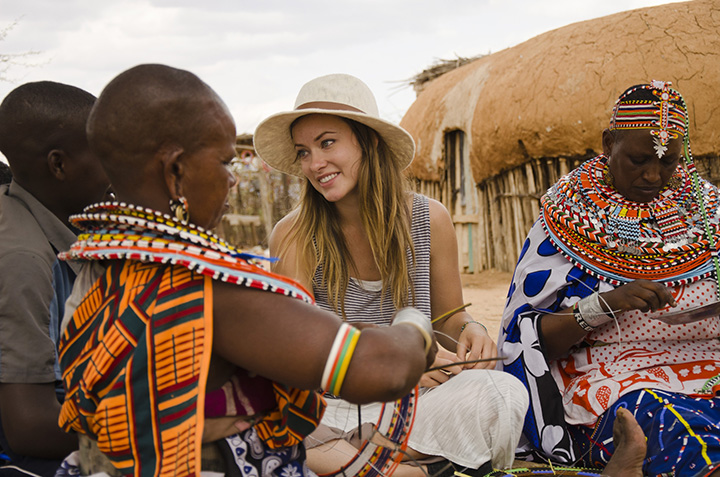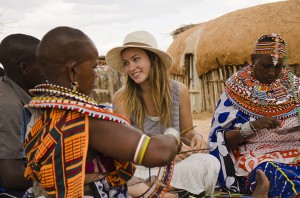

Associated Press
By Hayley Gibson
Reporter
In war-torn Sierra Leone, a young girl’s rape goes unnoticed. Rape is normal and socially acceptable, so when the horrifying experience is brought to authorities, the investigation never takes them from their desks. The young girl is merely another number.
Women’s rights are a universal issue of debate, although in some countries such as Somaliland, in which one in 14 women will die in childbirth because they lack the proper health care, the matter is more serious.
These womens’ stories spread across 10 different countries with widely different issues. All of the stories expose the deep mistreatment and oppression of women in the modern world in the documentary “Half the Sky.” The documentary inspires viewers to join in the efforts to empower women in a world that treats them as inferiors.
“Half the Sky” made its debut screening on PBS this week and now is available at pbs.com. Created by New York Times journalists Nicholas Kristoff and Sheryll DuWunn, the documentary partners with celebrities such as America Ferrera and Olivia Wilde to expose the deep injustice of women in 3rd world countries.
The documentary is a powerful example of the injustice that the world inflicts upon powerless women and the movement to “turn oppression into opportunity for women worldwide,” according to the “Half the Sky” website.
“In this world, talent is universal. Opportunity is not,” said Kristoff, in the documentary.
The documentary focuses on are female genital mutilation in Kenya, education in Vietnam, forced prostitution in India, gender-based violence in Sierra Leone, maternal mortality in Somaliland and sex trafficking in Cambodia.
For Melanie Smith, who leads the Baylor Women’s Leadership mission trips to Kenya every summer, the documentary expressed everything she has fought for in Kenya over the years.
Smith takes a team of female Baylor students to Nairobi, Kenya each summer to visit local microfinance businesses, schools and orphanages. Smith’s team shares leadership empowerment seminars among women who have only recently earned the right to vote.
“In Kenya they are starting to look at women differently and see they have incredible potential,” said Smith, who explained that women in Kenya have traditionally been married off young and are expected to care for the children and cook.
“When you change the life of a woman, you are changing the world and the future of a village,” Smith said.
A common thread among the countries featured in the documentary was human trafficking, society’s modern slavery.
The documentary took viewers inside the life of Cambodian girls younger than 10 years old whose parents sold them into the sex industry.
While the issue of human trafficking and its 27 million victims seems overwhelming for many, Cibolo junior Kacie Simpson, who is the chaplain of Baylor’s International Justice Mission chapter, believes steps must be taken to eradicate human trafficking.
“To know that someone who has a soul and was created in the image of God is being manipulated and used in a way that is so detrimental really sets a fire in me,” Simpson said.
Baylor IJM works to support the national IJM organization by focusing on increasing advocacy and awareness on campus.
The club will bring Invisible Children to Baylor this month to tackle the issue of child soldiers, and also plans to hold a poster campaign around Waco, which will depict the stories of individual victims of human trafficking in an effort to expose the injustice.
The documentary has sparked discussion online and on college campuses for its sobering information and insight into the brutal treatment of women in other cultures where they are denied basic dignity and necessities of life.
In a world where women are abused, I see hope. I see a generation that tuned in to PBS this week to learn more and a generation that got #halfthesky trending on Twitter.
The silent mistreatment of women in the 21st century must come to an end, and I believe that our generation will not be silent any longer.
The documentary will be available to view on www.pbs.com until Oct. 9.





